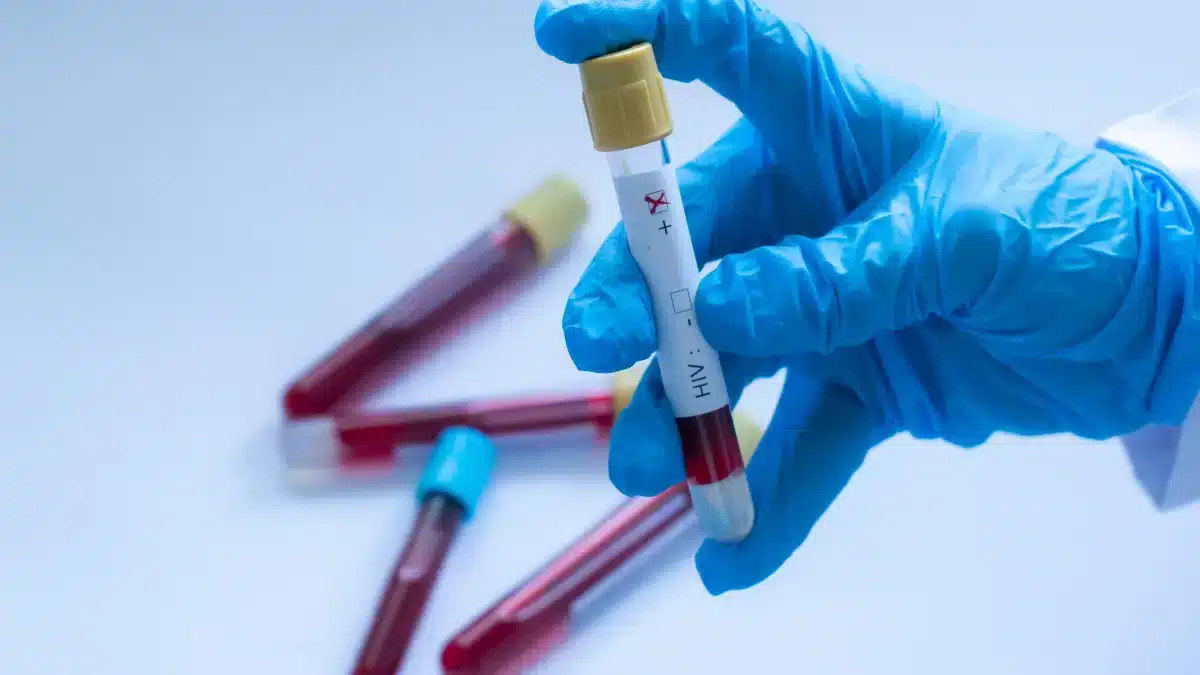What Does HIV Do to the Body: Impact and Consequences
HIV, the Human Immunodeficiency Virus, is a highly intricate and formidable virus that intricately disrupts the body’s immune system, leading to significant health implications.
This virus operates stealthily, progressing through various stages with distinct impacts on the body.
Understanding its mechanisms and progression into AIDS provides critical insights into the profound complexities of immune system breakdown.
This article will explore the diverse effects of HIV on the body, unraveling its stages and the consequential impacts on health.
What does HIV do to the body
HIV’s impact on the body varies across its different stages, which include:
- Acute HIV infection: Often marked by flu-like symptoms occurring within weeks post-exposure. Although resembling common illnesses, these symptoms can be indicative of HIV infection and signify high contagion
- Chronic infection: This phase is asymptomatic, but the virus continues to replicate, causing ongoing damage to the immune system over time
- AIDS: The most severe stage where immune suppression reaches a critical point, exposing individuals to a myriad of severe infections and diseases
Effects on health
HIV-induced immune system deterioration leads to a range of health complications.
The immune system’s compromised state makes combating even minor illnesses challenging.
Some of its effects include:
Opportunistic infections and complications
An alarming aspect of AIDS is the vulnerability to opportunistic infections, taking advantage of the compromised immune system.
Conditions like Tuberculosis (TB), Pneumonia, and specific cancers pose substantial risks to individuals in advanced stages of HIV disease.
Symptom progression

Upon HIV infection, flu-like symptoms may arise within a few weeks, mimicking common illnesses.
Subsequently, the virus may remain asymptomatic for years, silently undermining the immune system, even as individuals feel healthy.
As HIV progresses, severe symptoms emerge, including chronic diarrhea, night sweats, and weight loss.
These symptoms, coupled with opportunistic infections, significantly impact overall health.
What does AIDS do to the body
HIV progression to AIDS represents the most critical phase of the infection.
It is characterized by a significant decline in CD4 cells, leaving the body susceptible to opportunistic infections and malignancies.
As the HIV infection advances and the immune system weakens, individuals experience varying degrees of health impacts.
Symptoms manifest differently in each stage, delineating the complex nature of HIV/AIDS.
Prevention and treatment

Effective management of HIV involves various strategies:
- Preventing transmission: Understanding HIV transmission modes is crucial. Safe sex practices with condom use, avoiding needle-sharing during drug use, and regular HIV testing are vital preventive measures
- Early diagnosis and treatment: Early diagnosis allows for timely intervention. Effective Antiretroviral therapy (ART) can suppress the virus, preserving immune function and reducing the risk of progression to AIDS
- Management: With advancements in medication, proper treatment can significantly improve the quality of life for individuals living with HIV. Consistent adherence to ART helps maintain viral suppression, supporting immune system functionality
Conclusion
HIV progresses to AIDS, severely weakening the body’s defenses against infections and diseases.
This progression unfolds through distinct stages, impacting health differently at each phase.
Preventing HIV transmission through safe practices and early diagnosis with effective treatment like Antiretroviral Therapy (ART) is vital.
Managing HIV with consistent medication can improve life quality and immune function.
Understanding these steps is crucial in combating the impact of HIV/AIDS on the body.
Frequently Asked Questions
How does AIDS affect the human body?
AIDS significantly weakens the immune system, making the body vulnerable to severe infections and diseases. Opportunistic infections like Tuberculosis and certain cancers pose substantial risks, impacting overall health and potentially becoming life-threatening.
Which system of the body does HIV infect?
HIV primarily targets the immune system, specifically the CD4 cells coordinating the body’s defenses. The immune system weakens as the virus multiplies and destroys these cells, leaving the body defenseless against infections.
How does HIV affect your body?
HIV attacks the immune system, gradually reducing the number of CD4 cells. This weakening of the immune response makes the body susceptible to various infections and health complications. It progresses through stages, ultimately leading to AIDS, where the immune system is critically compromised.
What will happen to a person with HIV?
Once infected, a person with HIV may experience flu-like symptoms initially. Without treatment, the virus persists, gradually undermining the immune system for years, leading to severe symptoms, opportunistic infections, and, if untreated, progression to AIDS. Early diagnosis and treatment are crucial for managing the virus and maintaining health.
WowRx uses only high-quality sources while writing our articles. Please read our content information policy to know more about how we keep our content reliable and trustworthy.






